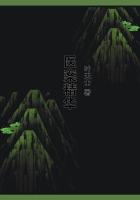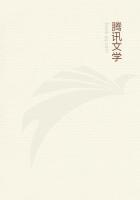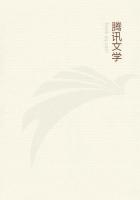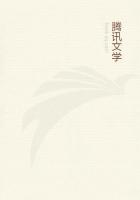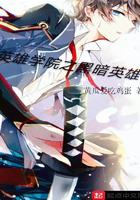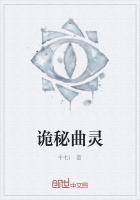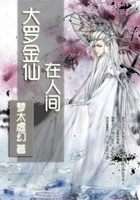This festival concluded with a grand dance, which at midnight wound up the affair.
As the description of these Tetons, given by Lewis and Clark, will give the reader a good idea of the manners, customs, and personal appearance of most of the Sioux nation, we will copy the journal in full.
It is as follows:
"The tribe which we this day saw are a part of the great Sioux nation, and are known by the name of the Teton Okandandas: they are about two hundred men in number, and their chief residence is on both sides of the Missouri, between the Chayenne and Teton Rivers. In their persons they are rather ugly and ill-made, their legs and arms being too small, their cheek-bones high, and their eyes projecting.
The females, with the same character of form, are more handsome; and both ***es appear cheerful and sprightly; but in our intercourse with them we discovered that they were cunning and vicious.
"The men shave the hair off their heads, except a small tuft on the top, which they suffer to grow, and wear in plaits over the shoulders; to this they seem much attached, as the loss of it is the usual sacrifice at the death of near relations.
In full dress, the men of consideration wear a hawk's feather, or calumet feather worked with porcupine quills, and fastened to the top of the head, from which it falls back. The face and body are generally painted with a mixture of grease and coal.
Over the shoulders is a loose robe or mantle of buffalo skin dressed white, adorned with porcupine quills, loosely fixed, so as to make a jingling noise when in motion, and painted with various uncouth figures, unintelligible to us, but to them emblematic of military exploits or any other incident: the hair of the robe is worn next the skin in fair weather, but when it rains the hair is put outside, and the robe is either thrown over the arm or wrapped round the body, all of which it may cover. Under this, in the winter season, they wear a kind of shirt resembling ours, made either of skin or cloth, and covering the arms and body.
Round the middle is fixed a girdle of cloth, or procured dressed elk-skin, about an inch in width, and closely tied to the body; to this is attached a piece of cloth, or blanket, or skin, about a foot wide, which passes between the legs, and is tucked under the girdle both before and behind.
From the hip to the ankle is covered by leggins of dressed antelope skins, with seams at the sides two inches in width, and ornamented by little tufts of hair, the produce of the scalps they have made in war, which are scattered down the leg.
The winter moccasins are of dressed buffalo skin, the hair being worn inward, and soled with thick elk-skin parchment; those for summer are of deer or elk-skin, dressed without the hair, and with soles of elk-skin. On great occasions, or whenever they are in full dress, the young men drag after them the entire skin of a polecat fixed to the heel of the moccasin.
Another skin of the same animal, either tucked into the girdle or carried in the hand, serves as a pouch for their tobacco, or what the French traders call bois roule.[1] This is the inner bark of a species of red willow, which, being dried in the sun or over the fire, is, rubbed between the hands and broken into small pieces, and used alone or mixed with tobacco.
The pipe is generally of red earth, the stem made of ash, about three or four feet long, and highly decorated with feathers, hair, and porcupine-quills.
[1] This is bois roule, or "rolled wood," a poor kind of tobacco rolled with various kinds of leaves, such as the sumach and dogwood.
The Indian name is kinnikinick.
. . . . . . . . .
"While on shore to-day we witnessed a quarrel between two squaws, which appeared to be growing every moment more boisterous, when a man came forward, at whose approach every one seemed terrified and ran.
He took the squaws and without any ceremony whipped them severely.
On inquiring into the nature of such summary justice, we learned that this man was an officer well known to this and many other tribes.
His duty is to keep the peace, and the whole interior police of the village is confided to two or three of these officers, who are named by the chief and remain in power some days, at least till the chief appoints a successor.
They seem to be a sort of constable or sentinel, since they are always on the watch to keep tranquillity during the day and guard the camp in the night.
The short duration of the office is compensated by its authority.
His power is supreme, and in the suppression of any riot or disturbance no resistance to him is suffered; his person is sacred, and if in the execution of his duty he strikes even a chief of the second class, he cannot be punished for this salutary insolence.
In general he accompanies the person of the chief, and when ordered to any duty, however dangerous, it is a point of honor rather to die than to refuse obedience. Thus, when they attempted to stop us yesterday, the chief ordered one of these men to take possession of the boat; he immediately put his arms around the mast, and, as we understood, no force except the command of the chief would have induced him to release his hold.
Like the other men his body is blackened, but his distinguishing mark is a collection of two or three raven-skins fixed to the girdle behind the back in such a way that the tails stick out horizontally from the body.
On his head, too, is a raven-skin split into two parts, and tied so as to let the beak project from the forehead."
When the party of explorers subsequently made ready to leave, signs of reluctance to have them go were apparent among the Indians. Finally, several of the chief warriors sat on the rope that held the boat to the shore. Irritated by this, Captain Lewis got ready to fire upon the warriors, but, anxious to avoid bloodshed, he gave them more tobacco, which they wanted, and then said to the chief, "You have told us that you were a great man, and have influence; now show your influence by taking the rope from those men, and we will then go on without further trouble."


